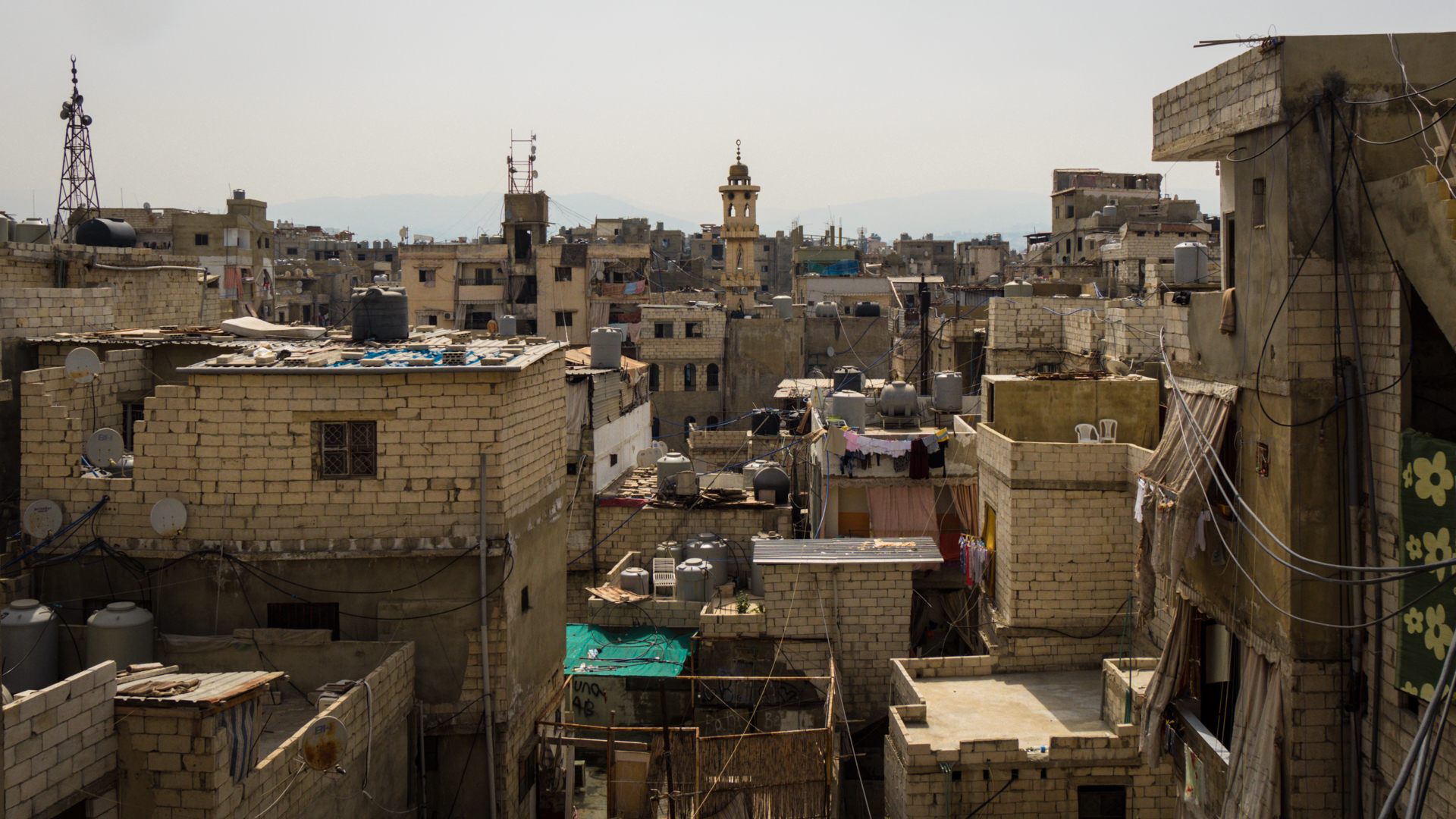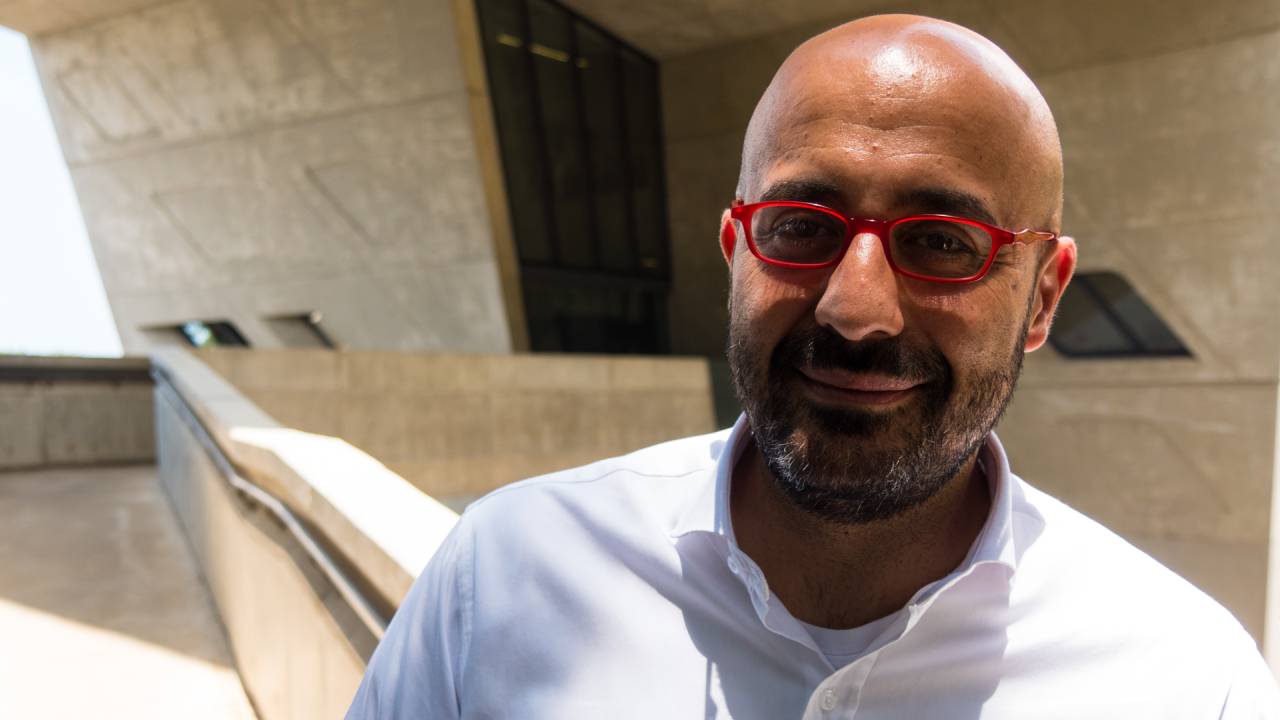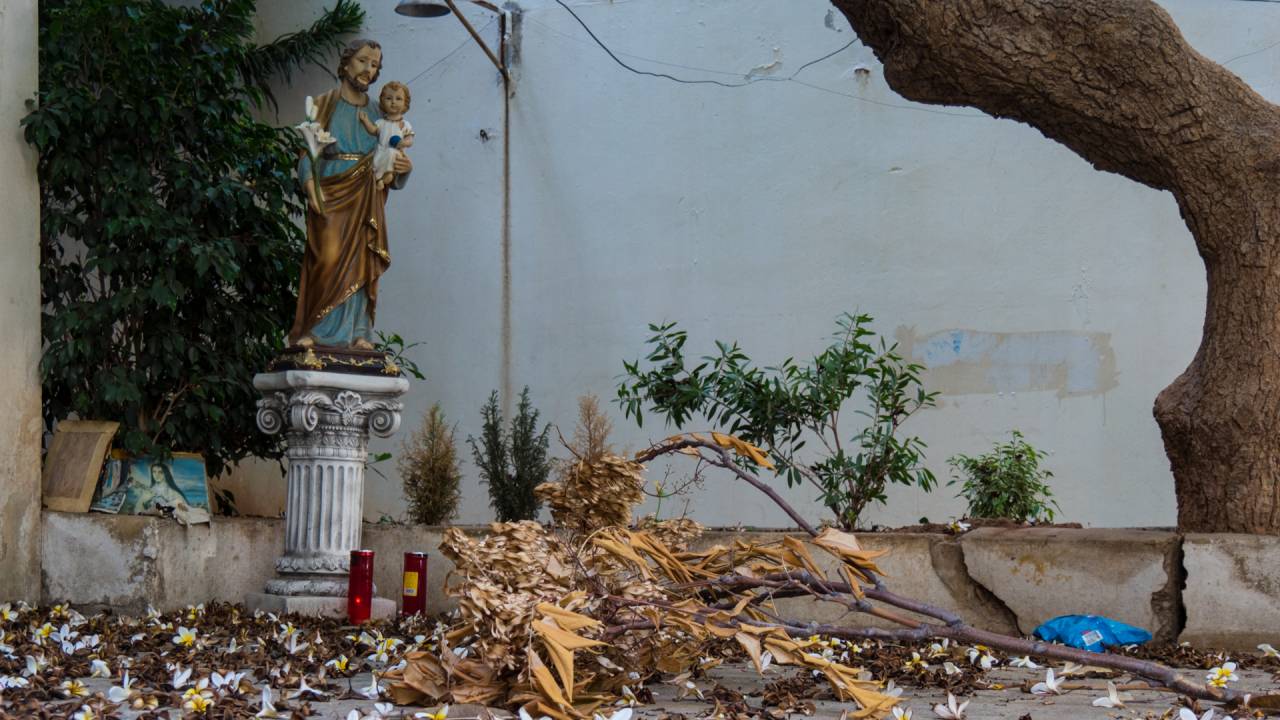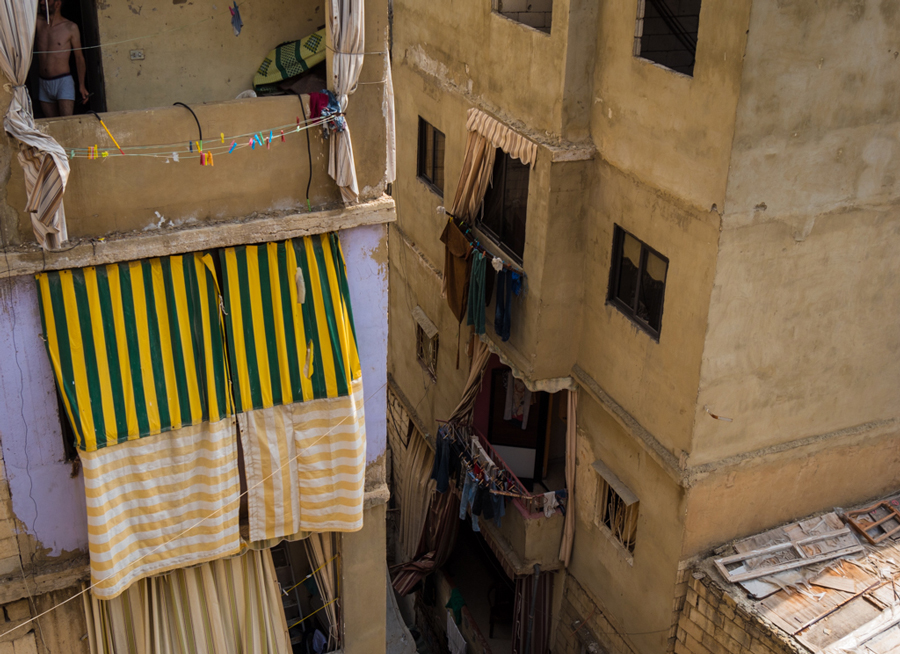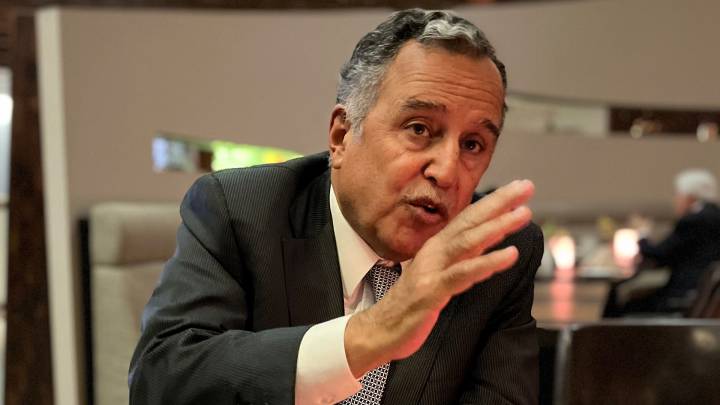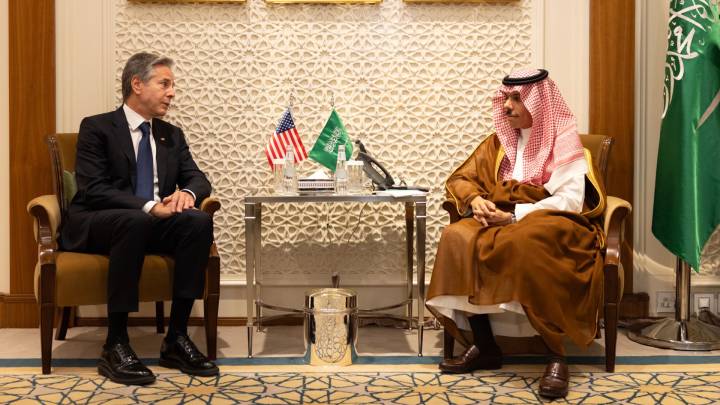Palestinians and Syrian refugees in Lebanon live as second-class citizens, paying the price for a politics obsessed by religious denomination and origin.
It’s a legal asset many people don’t give a second thought to. A small booklet, papers that prove legal origin, status, protect us from state arbitrariness and allow us to cross borders to go wherever we want to. Even give us an identity. Yet this document, the passport, and its greater reality of citizenship in one of the nations of this world, which for most of us seems a natural right, is unavailable to many people that live and work in Lebanon. Some of whom were even born there.
“Sometimes I simply avoid thinking about the situation I find myself in,” says Shadia, sitting behind her desk in her office in Beirut. Her defiant smile seems doubtful. “It feels like a nightmare.” Shadia was born in Lebanon, like her daughter. However, after her foreign born husband lost his citizenship, their child became stateless. She declines to have her real name used given her daughter's legal status.
If you don’t have any documents, you are non-existent. According to the United Nations, a stateless person is “a person who is not considered as a national by any state under the operation of its law”. In Shadia’s case, it is an old law – declared back in the days of the old Ottoman empire and kept by the French during their colonial occupation of Lebanon – that is causing all this trouble. Citizenship is usually obtained by either birthright, right of blood or a mix of both. But in Lebanon citizenship is de-facto passed on by a child’s father, never the mother. Only 27 countries have this policy, and 12 of them are in North Africa and the Middle East.
Shadia met her future husband in Lebanon. When they married, they registered their wedding in her husband’s country of origin. Which country that is, she doesn’t want to say publicly, as her husband was stripped of his citizenship due to his political work and is still being persecuted. He and their young daughter have been stateless ever since. All attempts to get a passport for her have failed.
“The officials said they can’t grant her citizenship, otherwise they would have to do the same for all the Palestinians!” Shadia shakes her head, as if she still can’t believe what has happened to her. “Now my daughter is stateless. Every year I must apply for a residence permit, even though she was born here!”
Tragic as this case is, it isn’t the only one. The UNHCR estimates that approximately 375,000 people in the Middle East and North Africa are stateless, excluding Palestinians and refugees. In the case of Lebanon, experts estimate some 80,000 to 200,000 people living there are stateless.
Politics of demography
It was straight after Lebanon’s foundation that difficulties began. The country inherited over a dozen different religious communities – a census held in 1932 by the French colonial administration revealed that one third of the Lebanese population considered themselves part of the Catholic Maronite community, 18 per cent considered themselves Sunni Muslims and 16 per cent were Shia Muslims. Ever since, Maronite, Armenian, Greek Orthodox, Protestant and other Christian groups have represented a narrow majority.
This ratio has had a crucial impact on the nation’s constitution. Since the declaration of the National Pact in 1943, Lebanon’s President has always been a Maronite Christian, the Prime Minister Sunni and the Parliamentary President Shia. To this very day, the distribution of political positions is based on the results of the census held 85 years ago.
Accordingly, some fear that a new census could challenge this fragile power division. Yet it is an open secret that the confessional ratio has changed dramatically over the past decades. Last year, the Economist cited secret Lebanese government documents revealing that the share of Christian voters has decreased to only 37 per cent. According to the papers, the Maronites, formerly the biggest Christian group in the country, are now only 21 per cent of the population. The proportion of Shia has risen to 29 per cent and Sunni to 28 per cent.
It isn’t surprising that all attempts to solve the issue of statelessness have led to heated debates. In 1994, 200,000 people, mainly Kurds and Bedouins, were naturalised. Critics considered this step a severe manipulation of Lebanese demography, as this time, unlike in 1932, Muslims were favoured by the decision-makers.
Professor Nasser Yassin, a political scientist at the American University of Beirut, calls this ‘demographobia’ – a word describing the fear that Syrians, Palestinians, Kurds or Bedouins could damage the fragile status quo.
“We urgently have to reconsider our current system of power distribution,” he says from his top floor office overlooking the calm Mediterranean Sea. The building he works in was designed by Zaha Hadid and divides opinions as much as Yassin’s political analysis. “Unfortunately, the trend heads towards the opposite direction.” According to Yassin, an over-emphasis on confessional components in the entire region is gaining ground. “The Lebanese model is getting more and more popular in Iraq, Syria and to a certain extent even in Egypt and Yemen,” he says in a despairing tone. This Lebanonisation of the Middle East leads to politics that only focus on identity, favouring the exclusion of real and alleged foreigners. This way resentments are created, and then used by politicians to win elections.
This approach could be seen in late 2016, when Lebanon’s President Michel Aoun was elected by promising to get rid of Syrian refugees as fast as possible. Marginalisation thus became a socially accepted tool, further contributing to the high numbers of stateless and endangered people in the region. With grave consequences: Stateless people aren’t allowed to work, have no health insurance, can’t attend public schools, can’t even register a car or purchase land.
“When we began to deal with statelessness in 2006, many Lebanese didn’t even know what it was,” explains Samira Trad, who is an advisory activist for Frontiers Right, an NGO that works on topics such as migration and statelessness, publishes, and even supplies clients with legal advice. “First we had to enlighten lawyers, midwives, politicians, doctors and community workers,” she says. There is probably no one in Lebanon who knows more about the legal subtleties of citizenship law than Trad.
The support that Frontiers Right provides can be of great benefit, for instance when parents simply forgot or missed the registration of their child. There are many of these cases, as in the 1932 census many Kurds were ignored, others were registered as foreigners, and numerous Bedouins in the Syrian border area were overlooked. Many Lebanese with no fixed abode simply weren’t aware of the fundamental importance of the census, or ignored it in opposition to French colonial rule.
All these factors contribute to the fact that it was mostly people of Islamic faith who were neglected in the census, creating a demographic conflict from the very beginning of the foundation of modern Lebanon. Events such as the foundation of the state of Israel in 1948, the Six-Day War in 1967, the Lebanese Civil War 1975-1990 and the ongoing civil war in Syria have aggravated this conflict even more. While the stream of Palestinian refugees into the country after the wars of 1948 and 1967 put Arab solidarity already to the test, the Lebanese civil war deeply poisoned society.
“Many blame the Palestinians for the civil war,” Professor Yassin claims. “Of course, this is nonsense. Still, one has to know this when talking about refugees.” The circumstances of life are severe for refugees, as Palestinian slums in Beirut and other cities around the country show.
Life of a refugee
To strangers, the alleys in Shatila seem unreadable. Left, left, right, left. Two corners further on, you are led back to the main street. The omnipresent power lines dangle across the streets, connecting everything and nothing. The walls are covered with portraits of martyrs fallen in the wars with Israel. It seems as if they are watching the busy life of the living. Whoever loses his life for the sake of resistance is honoured here. Politics and struggle are ever-present in these streets. Hamas, Fatah and other organisations have offices here, guarded by young men with Kalashnikov rifles.
This unreal place is the core of the Palestinian parallel society and an allegory of the Lebanese malaise. Even Mahmud Abbas, President of the Palestinian National Authority, surrendered to the issue of statelessness during a state visit in 2009. He declared, contrary to all realistic expectations, that the stay of Palestinian refugees would only be temporary – meaning that therefore there was no need to obtain a Lebanese passport. This took a lot of pressure off local politicians that had been refusing citizenship and equal rights to refugees and their children for a long time – rights that, among others, have been granted by the 1965 Casablanca Protocol, which Lebanon has ratified. The slum of Shatila strikingly shows how identity and descent became important political currency in the little Mediterranean state.
This already severe situation became even worse when hundreds of thousands of Syrian refugees began entering the country in 2011. In only a few years, Lebanon became the country with the highest number of refugees per capita. Even though most of them are Syrian passport holders, many refugees and their children are in danger of becoming stateless in the medium term, due to lacking the necessary documents or their birth not having been registered in Lebanon.
How are these children supposed to go back to Syria without documents?
Anas Tello knows the problems refugees must deal with, from first-hand experience. “Only after hours of waiting and after I paid 300 US dollars, did officials from the Syrian embassy gave me a passport, valid for only two years,” Anas explains. The 28-year-old former architecture student from Damascus works for Women Now For Development, an NGO founded in 2012 that aims to improve the situation of women in Syria and Lebanon. “Many people are scared to go to the embassy. Lebanese army checkpoints are everywhere. You never know what will happen if they stop you without valid documents,” he explains. “Many Syrians have lost everything, especially the poor ones that used to live close to the border. They never leave the camps, in fear of the military checkpoints.”
Lost or invalid passports make daily life harder, but the situation is even worse for people whose birth has not even been registered. Lebanese bureaucracy has designed a fairly complex process to register new-born children, a process which must be completed within a year. Many refugees struggle with this, and many fail. The UNHCR estimates that approximately 70 per cent of refugee children born since the beginning of the civil war have not been registered with officials.
Anas is angry about this dead-end situation. “How are these children supposed to go back to Syria without documents? In a couple of years, there will be an entire generation without documents. What are they? Syrian or Lebanese?”
Like many experts, the young activist particularly criticises the annual cost of USD 200 for a Lebanese residence permit. He considers this one of the biggest obstacles to registration. However, at least on this point the Lebanese government seems to be making some improvements. The reasons for this policy shift are quite simple: In order to get rid of the refugees at some point, their Syrian roots have to be recorded and registered. It is telling that such an argument proved decisive.
However, nobody knows whether the Syrian government will acknowledge even registered newborns and grant them a Syrian passport, since Syrian nationality is only passed on by the father. And according to unconfirmed reports, the Syrian regime has stripped the citizenship of tens of thousands of Syrians in their absence. If these rumours turn out to be true, that would mean that thousands of children born in Lebanese refugee camps are stateless.
Important too is the fact that 80 per cent of all Syrian refugees are women or children, with their husbands, sons and brothers either detained in regime prisons, have fallen during the war or have been separated from their families for other reasons. Amina Khalawni, part of the Families for Freedom movement which fights for the release of thousands of prisoners in Syria, knows many pregnant women who had to leave Syria without their husbands. Life for those divided families in exile is hard. Apart from the severe psychological burdens, there are many other problems. Many women have never earned their own living before, and they are often overwhelmed by the Lebanese bureaucracy.
“If you don’t have any documents, you are non-existent. The worst part is that you can’t even work legally without papers. If someone stops you without documents, you get into a hell of a mess,” says Khalawni. Whether the children of those single parents will ever get Lebanese or Syrian citizenship is uncertain. Are they Syrian by descent, or are they Lebanese by place of birth? Even if they somehow manage to deal with the current situation, tens of thousands could fall through the cracks.
Parallel lives
A preventable trap as even the Lebanese constitution forbids discrimination against single parents: according to Article 7, men and women are equal before the law. There is also another aspect: in accordance with international law, the matter of place of birth becomes decisive with regard to citizenship, if the child will otherwise be stateless.
“Many don’t know about this legal provision or can’t afford a lawsuit,” declares activist Samira Trad, enraged. “Citizenship law isn’t even taught at the law faculties here! There are many ongoing lawsuits where we try to make this point and hope to create a precedent.”
Without this kind of legal support, the absence of fathers remains a great misfortune for the families. Women like Amina, Samira and Shadia are fully aware of the discrimination against them. Of course, the case of a Lebanese women with an expatriated husband and the situation of a single mother from Syria aren’t the same. However, these women are unified in their great sorrow for their children’s future. They all are the collateral damage of the fragile Lebanese political balance, and they share their fate with many Kurds, Bedouins and Palestinians in the country. Some of them fear the consequences of a life without citizenship; others are already stateless.
However, they also have something else in common: they create informal networks, work in the informal economy and use personal contacts to enable their kids to attend public schools. They often pay fortunes to dubious people to somehow get a foreign passport; they cross the border at night to gain access to medication and medical infrastructure. They live in a parallel reality, and create parallel societies. They find ways to survive.
The production of this article has received funding from the Migration Media Award, funded by the EU. The information and views set out in this article are those of the author and do not necessarily reflect the official opinion of the European Union. Neither the European Union institutions and bodies nor any person acting on their behalf may be held responsible for the use which may be made of the information contained therein.
